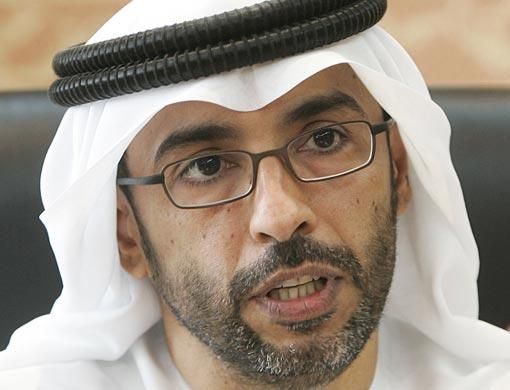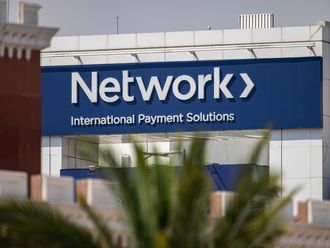Abu Dhabi: The UAE's Zakat Fund, which collects zakat (alms) from Muslims as a percentage of their wealth, has said local Islamic banks and companies will have to pay 2.5 per cent of their net operating capital to the fund from the beginning of next year.
Abdullah Bin Aqeeda Al Muhairi, secretary general of the fund, said eight Islamic banks and 13 Islamic finance and insurance companies are among those that will have to make their zakat payments.
The fund's bylaws will be amended to make it obligatory for these companies to submit audited accounts and pay 2.5 per cent of their net operating capital to the fund, Al Muhairi told Gulf News in an interview.
The move, he said, is meant to streamline the distribution of zakat to needy people and charities.
Earlier, Islamic banks and other companies distributed zakat to underprivileged people and charitable organisations in the UAE on their own.
Zakat, the third pillar of Islam, is the money that every adult, mentally stable and financially able Muslim has to pay to support the poor and needy.
Although Al Muhairi expected an overwhelming response from these Islamic companies, he said any firm that fails to abide by the law will be penalised. He did not reveal penalties "as bylaws have not been worked out yet".
He said the Cabinet will issue a decree forming a grievances committee to look into any complaints submitted by Islamic companies with regards to the zakat payments.
Al Muhairi did not rule out that other companies that do not follow the Islamic system may also be obligated to pay their zakat to the fund once the initial pilot project succeeds. "Within five years of this experiment, other companies may be required to pay their zakat payments to the fund," he said.
Al Muhairi said that should the UAE's 70,000 millionaires pay their zakat, the fund would rake in more than Dh6.5 billion, which is enough to cover the country's expenditure on the needy.
Gulf News: The Ministerial Council for Services has instructed the Zakat Fund to amend its law to make it mandatory for Islamic banks and companies in the UAE to transfer their zakat money for the fund's disposal as of the end of this year. Why has it been made mandatory, given that it is optional now?
Abdullah Bin Aqeeda Al Muhairi: The obligatory nature of zakat is firmly established in the Quran, the Sunnah, and the consensus of the companions and the Muslim scholars.
And once the Cabinet decrees that the zakat payments must be made to the fund, all companies must comply with it.
Zakat is one of the basic principles in Islamic econ-omics, based on social welfare and fair distribution of wealth. Islam has made zakat a compulsory obligation on every Muslim.
Scholars infer that zakat purifies a Muslim's wealth and also suppresses ego, jealousy, greed and miserliness. It is not a form of tax but rather a divine duty and considered as a right of the poor over the rich, not a charity.
As zakat is imposed on wealth, it makes wealth circulate in the body of the country, which acts a powerful inducement to invest capital in productive enterprises, thus encouraging growth.
Are there not enough resources for the fund to carry on its charitable activities or are their specific expansion plans?
Although the fund's resources are steadily growing, they do not cover expenditure on the poor and the needy.
Since the establishment of the fund in 2003, Dh117.6 million in zakat money has been collected, of which around Dh108 million has been spent on underprivileged people.
The government has increased its subsidy to the fund from Dh7 million to Dh17 million, but again the resources fall short of meeting all charitable activities and expansion plans under our strategic plan.
This prompted us to think of other options. The country has more than 160,000 companies and 70,000 millionaires, but the collected money amounts only to the zakat of one member of the super-rich population.
The proposal was that the fund moves gradually. The first step included Islamic organisations of all types - banks, finance and insurance companies.
The proposal was approved by the Ministerial Council for Services. The fund is studying experiences of other Islamic countries that apply compulsory zakat such as Saudi Arabia and Malaysia.
Then the fund will work out a comprehensive system of the intended collection pattern and disbursement practices. We will start from where others ended.
Is the move prompted by the failure of Islamic banks to deploy their zakat money correctly?
No, not at all. We have confidence in our local Islamic banks and the Zakat Fund cooperated with them. The point is that the fund is a federal specialised authority in charge of collecting and disbursement of zakat payments.
We have specialised staff in calculating zakat, whereas other organisations do not. They have accountants who lack experience in the field. So the fund will spare these organisation the burden of collecting and disbarment of zakat money.
Moreover, Islamic banks can still help us in collecting zakat payments from other organisations that will not be subject to the law in the first stage.
But certain banks have specific areas of disbursement for Zakat payments.
We do not mind that these banks suggest certain areas for disbursement of the zakat money. On the contrary we welcome any cooperation in this regard. We also coordinate with other charities in this regard.
What if these companies refuse to transfer the funds and decide to spend directly on zakat?
The Zakat Fund does not expect any opposition to the Cabinet decision. I personally have a conviction that the decision will receive an overwhelming response from all local Islamic organisations.
However, those who fail to transfer their zakat money to the fund will be penalised in accordance with the the law. The penalties have not been drafted yet.
Can you give a list of these banks and companies to which the law will be applicable?
The Zakat Fund has gathered information from the Central Bank, Chambers of Commerce and Industry, the Ministry of Economy and authorities about Islamic organisation operating in the UAE.
These organisations include eight Islamic banks, two Islamic investment companies, 10 Islamic finance companies and three Islamic insurance companies. The list, however, is not final yet.
How will the Zakat payment be calculated? Is it 2.5 per cent of these companies' profits?
No, it is not 2.5 per cent of the profits. The zakat payments will be calculated by two equations. One is 2.5 per cent of the net operating capital. (Net operating capital = current assets - current liabilities)
Generally, net operating capital is equal to cash, accounts receivables and inventories less accounts payable and accruals. The second way is 2.5 per cent of the financial sources. (Financial sources = long-term liabilities - net fixed assets).
What are the main areas of focus in your strategic plan?
The 2008-2010 strategic plan of the fund aims at increasing the number of zakat payers by 10 per cent annually. At present, we have 2,050 people who pay zakat to the fund.
Revenues from zakat payments are planned to be tripled by the end of 2010 from the current amount of Dh46,750,000. Revenues from other sources are planned to be increased by 20 per cent this year, 32 per cent next year and 42 per cent in 2010.
The fund also encourages companies to sponsor its various activities.
We also plan to increase awareness of the zakat concept by 20 per cent by the end of 2010. By the end of this year, the fund plans to receive requests from the underprivileged people to receive zakat.
We will also launch a campaign in Arabic and English through all media menas. Courses on zakat accountancy will also be organised for accountants and finance managers of companies.
Fact File
Online payments
Payments to the Abu Dhabi-based Zakat Fund can now be made online at www.zakatfund.ae. The site was set up through Dubai eGovernment's ePay service. Payments can be made with Visa, MasterCard and American Express credit cards.
The fund, which was established in 2003 as the single federal entity authorised to collect and disburse zakat inside the country and abroad, is also the first such institution in the world to allow zakat to be paid by mobile phone.
Zakat is the payment that every adult Muslim must make to support the poor. It is obligatory after one lunar year passes with the money in the control of its owner. Then the owner must pay 2.5 per cent of his total wealth as zakat.











